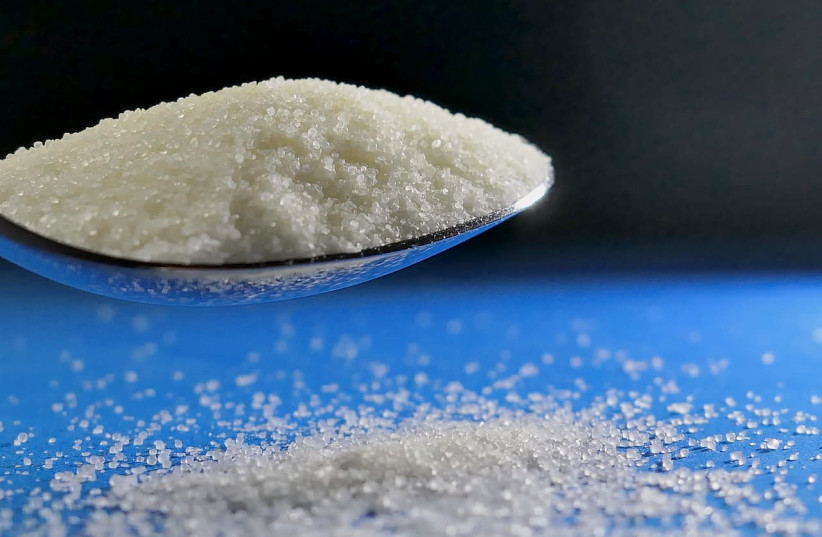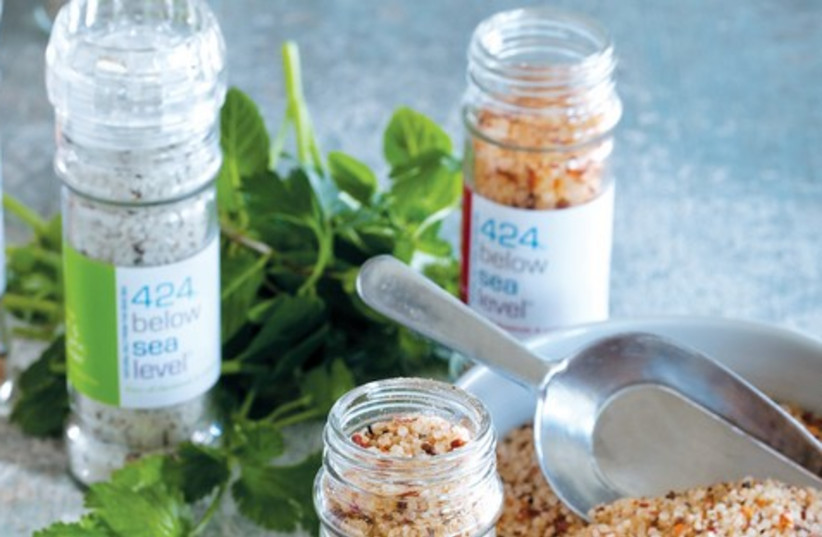Adding extra salt to your food puts you at a higher risk of dying, regardless of the cause, a new academic study has found.
The study looked at any possible association between adding salt to one's food and premature deaths, though it notably did not include salt used in cooking but rather extra salt added to food.
The findings of the study were published in the peer-reviewed academic periodical the European Heart Journal.
Don't be so salty
Scientists have long debated the exact nature salt intake during eating has on one's health.
Recently, this debate was sparked again by studies indicating that sodium intake (itself linked with salt, also known as sodium chloride) is linked with a higher risk of death, but results have often been inconsistent on this in the past.

Part of the reason for this is due to low accuracy sodium measurements. This is because sodium intake tends to vary greatly on a day-to-day basis.
This, in turn, was because of how sodium intake was studied, either by dietary survey or a single day's urine sample, neither of which are enough to properly measure it.
Not only that, but there is further confusion regarding the studying of sodium intake and potassium intake, based on existing methods.
So how can we properly study sodium intake? Well, the answer seems to be salt added to food.
What scientists do know is that adding extra salt to food is very common, influences one's preference for salty flavors and can contribute significantly to how much salt one consumes.
Scientists have determined that adding extra salt to food accounts for 6%-20% of total salt intake in Western diets.
But table salt, which is the primary type of salt used, also has the benefit of being nearly entirely (97%-99%) sodium chloride. What this means is that it is far easier to determine sodium intake from this without getting confused with other dietary elements, like potassium.
But few studies have ever actually gone so far as to study adding salt to food and how it impacts mortality rates. Until now.

The study
To analyze this data, the scientists made use of data covering over 500,000 people via the UK biobank.
These participants were given a touch-screen questionnaire and were asked if they add salt to food, not including salt for cooking, and could give one of five possible answers: Never/rarely, sometimes, usually, always and prefer not to answer, the latter of which were assigned to a missing value.
In addition, the participants also had to answer if they made any major diet changes in the past five years, with the possible answers being no, yes because of illness, yes because of other reasons and prefer not to answer.
The scientists also collected urine samples, from which sodium and potassium counts were measured.
Next, the question was how to tell if one's risk of dying was increased. How can one tell life expectancy was impacted?
To do this, scientists had to review death certificates from the UK's National Health Services. From here, it became a matter of determining at one point is a death considered premature.
By studying the dates of death as well as other related info, it was determined that dying before the age of 75 was considered premature.
But how does this relate to salt?
Here to study the participants adding salt to their food, the scientists used a life table. This refers to a table used in statistics that shows the probability that someone of each age might die.
These tables used in this study covered the ages of 45-100.
To calculate survival odds, the researchers used three estimates: The UK Office for National Statistics data on sex- and age-specific mortality rates; the sex-specific hazard ratios of mortality in each group depending on how often they added salt to their food; and the sex-specific prevalence of each frequency of adding salt.
So a high frequency of adding salt would be estimated as the difference in life expectancy between each group and the reference data.
Results
When the data was all calculated, the scientists concluded that people who always added salt to their food had a 28% raised risk of death.
Take into account that currently, among those between the ages of 40 and 69 in the general population, around three in every 100 people will die prematurely. Now, adding data from people always adding salt to their food, that number will climb to four in every 100 people dying early in this age group.
At the age of 50, women who always added salt to their food essentially lost 1.5 years of life, while men who did so lost 2.28 years.
That being said, there may be ways to reduce risks, at least somewhat, by eating high amounts of fruits and vegetables, though the difference this could bring wasn't deemed statistically significant.
"Even a modest reduction in sodium intake, by adding less or no salt to food at the table, is likely to result in substantial health benefits, especially when it is achieved in the general population."
Prof. Lu Qi
The most significant outcome of this, according to lead researcher Prof. Lu Qi, of Tulane University School of Public Health and Tropical Medicine, New Orleans, is that it can help with changing dietary habits to improve health. Especially since even cutting back on salt intake just a bit can be beneficial.
"To my knowledge, our study is the first to assess the relation between adding salt to foods and premature death," Qi said in a statement.
"It provides novel evidence to support recommendations to modify eating behaviors for improving health. Even a modest reduction in sodium intake, by adding less or no salt to food at the table, is likely to result in substantial health benefits, especially when it is achieved in the general population."
So next time you go eat dinner, maybe be sure to hold the salt.
